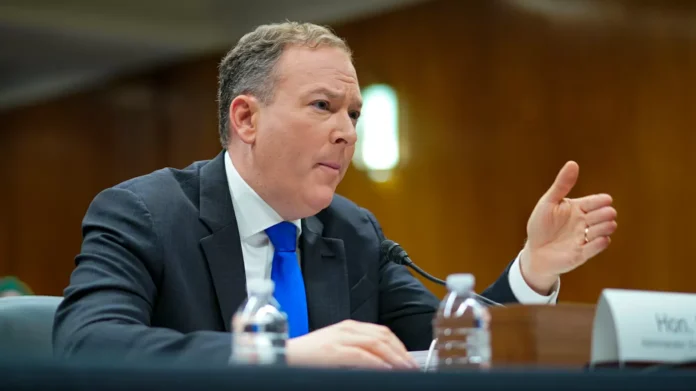The Trump administration has recently proposed to repeal a crucial finding from 2009 that declared greenhouse gases (GHG) as a threat to the public. This decision has sparked widespread concern and criticism from environmentalists and experts alike. The “endangerment finding” was a landmark ruling that came after the Supreme Court’s 2007 decision, which gave the Environmental Protection Agency (EPA) the authority to regulate GHGs if they were found to be harmful to the well-being of Americans. However, the current administration’s move to repeal this finding has raised questions about the future of environmental protection in the United States.
The endangerment finding was a significant step towards addressing the issue of climate change and its impact on our planet. It recognized the harmful effects of GHGs on the environment and the health of the public. This finding was based on extensive research and scientific evidence that showed the link between GHGs and global warming. It was a crucial tool for the EPA to regulate emissions from industries and vehicles, which are major contributors to GHG emissions.
However, the Trump administration’s proposal to repeal this finding is a major setback in the fight against climate change. It sends a message that the current government is not committed to addressing this pressing issue and is willing to ignore the well-being of its citizens. This decision is a clear indication of the administration’s disregard for scientific evidence and its prioritization of corporate interests over the health of the planet.
The EPA’s ability to regulate GHGs is now at risk, and this could have severe consequences for the environment and public health. Without the endangerment finding, the EPA would lose its legal basis to regulate GHGs, and industries would have free rein to emit harmful pollutants into the atmosphere. This could lead to an increase in air pollution, which has been linked to various health issues such as respiratory problems and heart disease. It could also accelerate the pace of climate change, leading to more frequent and severe natural disasters.
The decision to repeal the endangerment finding is also a step back from the United States’ commitment to the Paris Climate Agreement. The agreement, which aims to reduce global greenhouse gas emissions, was signed by the US in 2016. However, with this recent move, the US is sending a message that it is not willing to take responsibility for its contribution to climate change and is not committed to fulfilling its obligations under the agreement.
The Trump administration’s justification for repealing the endangerment finding is that it was based on flawed science and that it would have a negative impact on the economy. However, this argument is not supported by facts. The scientific evidence behind the finding has been extensively reviewed and validated by experts. Moreover, investing in clean energy and reducing GHG emissions can actually have a positive impact on the economy by creating new jobs and promoting innovation.
It is also worth noting that the majority of Americans support taking action to address climate change. A recent survey by the Yale Program on Climate Change Communication found that 69% of Americans believe that the US should take aggressive action to reduce GHG emissions. This shows that the Trump administration’s decision to repeal the endangerment finding goes against the will of the people.
In conclusion, the proposal to repeal the endangerment finding is a dangerous and irresponsible move by the Trump administration. It undermines the efforts to address climate change and protect the environment. It also goes against the will of the American people and sends a message that the current government is not committed to the well-being of its citizens. It is crucial for the EPA to continue to have the authority to regulate GHGs, and for the US to fulfill its obligations under the Paris Climate Agreement. We must all come together and demand that our government takes action to protect our planet and the health of future generations.

